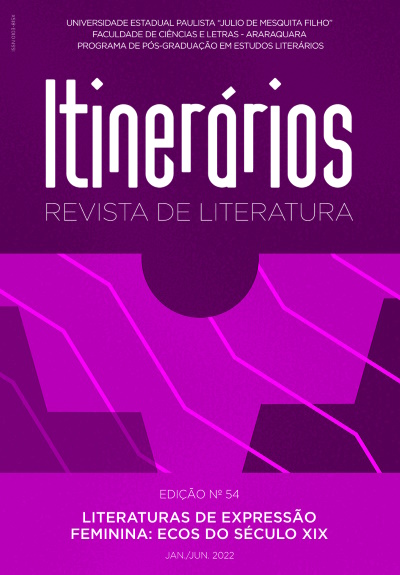The image of women in the 19th century
does Edna Pontellier reinforce or subvert it?
DOI:
https://doi.org/10.58943/irl.vi54.16222Keywords:
Decolonial Theories, Ethnography, Feminisms, Women’s LiteratureAbstract
This article aims to reflect on the condition of women in the 19th century from the character Edna Pontellier, in the novel The Awakening, written by Kate Chopin. In this text, we seek to highlight the importance of literary texts as a tool for the analysis of ethnographic subjectivities, from the reading of cultural symbols as ways of maintaining power and domination. Although fictional texts, they translate, through verisimilitude, the social construction, culture, and history of a given period. Based on dialogues between Decolonial Theories, Border Feminisms, and authors such as Butler (2008), Tarrow (2009), and Caetano (2019), who deal with gender issues, we seek to build tensions between the political, cultural, and ethnic diversities expressed in the novel, avoiding the creation of political subjects that are excluding, but that instead build processes of cultural translation. The use of the novel as a tool for ethnographic studies was supported by authors such as Clifford (2008), Gledson (1986), and Lamaire (1989), among others.
Downloads
Published
Issue
Section
License
Os manuscritos aceitos e publicados são de propriedade da revista Itinerários. É vedada a submissão integral ou parcial do manuscrito a qualquer outro periódico. A responsabilidade do conteúdo dos artigos é exclusiva dos autores. É vedada a tradução para outro idioma sem a autorização escrita do Editor ouvida a Comissão Editorial.

